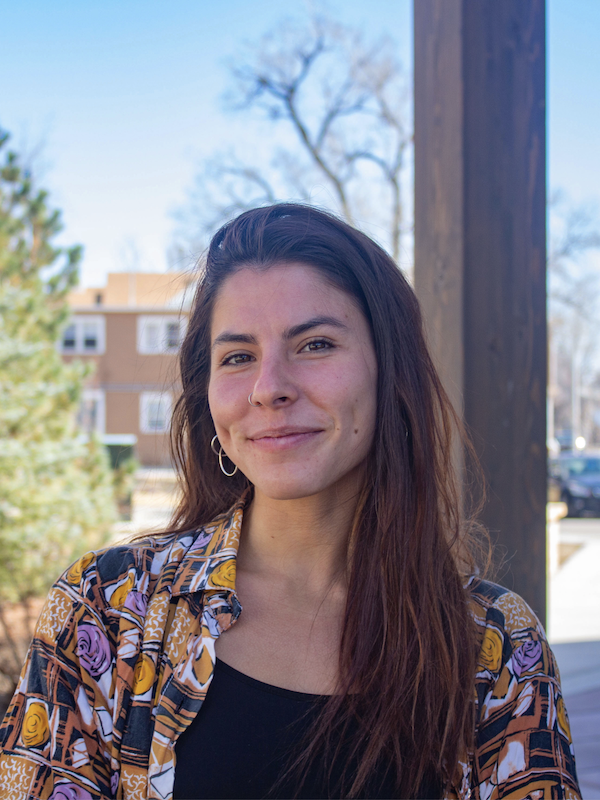Julieta Lechini
 Pronouns: she/her/their
Pronouns: she/her/their
Graduation year: 2022
Hometown: Montevideo, Uruguay
Currently living in: Europe (jumping around)
Current occupation: 4 Cities Urban Studies Master Student
What was your experience at CC like as an Anthropology major?
I think the Anthropology Department was one of the biggest highlights of my time at the college. They gave us a huge amount of support and resources to do our own research and try to find and explore our interests. Also, I appreciate their flexibility in listening to our feedback and which types of classes we wanted to have more of. I was able to dive deep into different methods (visual ethnography for example) and take courses abroad (summer block in Ecuador) that enriched my experience as a student so much.
Why were you interested in focusing on Anthropology as your major?
It’s a discipline that is continuously proving to be self-reflective and gives immense tools, such as ethnography, to be able to do decolonial/feminist academic work that can translate into real participatory changes. I always wanted to work in Participatory Anthropology research since fieldwork enriches working in the field more and more by using our own living experiences as a point of analysis. This is why I focused a lot also on migration (as a migrant) and housing living experiences.
How are you using your major in your post-CC life?
I received an Erasmus Mundus Joint Master Scholarship to do a master's in Urban Studies in Europe for two years. While it is an interdisciplinary master's, I plan on conducting my thesis and research from my anthropological and ethnographical work, learning how to apply participatory urban planning to urban research from a Feminist and Decolonial Urbanist perspective. This interest in Urban studies started after working on my thesis at CC, studying migration and housing accessibility in Montevideo, Uruguay. I was very motivated to continue learning how to make cities more accessible and how political anthropological and urbanist research can help make cities more welcoming for everyone.
